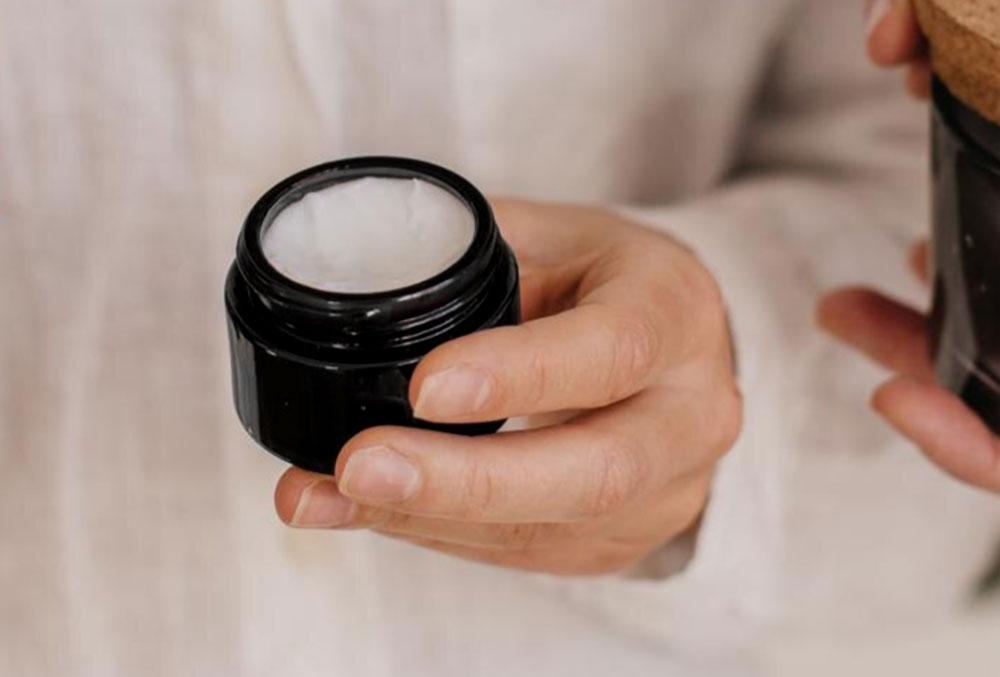A Complete Guide to Vitamin C Skin Care Products

In the world of skincare, few ingredients are as well known as Vitamin C. Renowned for its powerful antioxidant properties and ability to brighten the complexion, Vitamin C has become a cornerstone in the beauty industry. Whether you’re new to skincare or a seasoned enthusiast, understanding the role of Vitamin C skin care products is essential. This guide will take you through everything you need to know, from the basics of Vitamin C to the benefits, myths, and how to incorporate it into your skincare routine.
What is Vitamin C?
Vitamin C, also known as ascorbic acid, is a water-soluble vitamin that plays a crucial role in maintaining healthy skin. It’s naturally found in various fruits and vegetables, including oranges, lemons, strawberries, and broccoli. Beyond its dietary benefits, Vitamin C is a potent skincare ingredient, often featured in serums, creams, and other topical products. Its primary function in skincare is to combat oxidative stress, a key factor in skin ageing while promoting a brighter and firmer complexion.

History of Vitamin C in Skincare
The journey of Vitamin C in skincare is a fascinating one. The history of Vitamin C dates back to the 16th century. Often credited to British surgeon James Lind, the discovery of vitamin C’s ability to prevent scurvy was actually made 100 years earlier by the prominent Spanish doctor Fray Agustín Farfán. However, it wasn’t until the 20th century that Vitamin C’s potential in skincare was realised.
In its purest form, ascorbic acid, Vitamin C is highly unstable and prone to degradation when exposed to air, light, and changes in temperatures amongst other factors. This instability posed a significant challenge for early skincare formulations. However, the development of stable derivatives, such as ascorbyl palmitate and magnesium ascorbyl phosphate, revolutionised the industry, allowing for the creation of effective Vitamin C skin care products. To date, in its pure form, it is considered the benchmark for antioxidants in skincare, owing to its extensive research and proven benefits.
6 Benefits of Vitamin C for the Skin
Vitamin C is celebrated for its multifaceted benefits for the skin. Here are some of the most notable:
- Antioxidant Protection: Vitamin C is a powerful antioxidant that protects the skin from free radicals, which are unstable molecules that can cause cellular damage and accelerate skin ageing.
- Collagen Production: It stimulates collagen synthesis, which is essential for maintaining skin firmness and elasticity. This helps in reducing the appearance of fine lines and wrinkles.
- Brightening Effect: Vitamin C inhibits melanin production, helping to fade hyperpigmentation, sun spots, and acne scars, leading to a more even skin tone.
- Soothing Properties: It reduces irritation and redness, making it beneficial for acne-prone and sensitive skin.
- Sun Protection: While Vitamin C is not a replacement for sunscreen, it enhances the skin’s natural protection against UV damage when used in conjunction with SPF products.
- Wound Healing: Vitamin C supports the skin’s natural healing process, making it effective in treating minor wounds and scars.

Different Types of Vitamin C in Skincare
Vitamin C comes in various forms, each offering unique benefits and characteristics. Here’s a comprehensive overview of the most common types of Vitamin C used in skincare:
- Ascorbic Acid
- Description: The most well-known and researched form of Vitamin C.
- Benefits: Effective at penetrating the skin barrier, promoting collagen production, and providing antioxidant protection.
- Best For: Normal skin types at a pH of less than 4. Sensitive skin may prefer a pH of 5-7.
- Usage Tips: Start with a low concentration and gradually increase to avoid irritation.
- Sodium Ascorbyl Phosphate
- Description: A less potent but still beneficial form of Vitamin C.
- Benefits: Converts to ascorbic acid upon application, providing antioxidant protection and promoting skin health.
- Best For: All skin types, especially sensitive skin, due to its more stable nature compared to ascorbic acid.
- Magnesium Ascorbyl Phosphate
- Description: A very stable form of Vitamin C.
- Benefits: Hydrating and calming, making it excellent for acne-prone skin.
- Best For: Acne-prone and sensitive skin, as it provides effective antioxidant protection without irritation.
- Sodium Ascorbate
- Description: A mineral salt of ascorbic acid.
- Benefits: Less potent and less irritating than ascorbic acid, with added stability. It scavenges free radicals and helps lighten skin discolouration.
- Best For: Sensitive skin types looking for a milder form of Vitamin C.
- Calcium Ascorbate
- Description: Another mineral salt of ascorbic acid.
- Benefits: Supports collagen synthesis, tissue repair, and antioxidant defence while hydrating and reducing fine lines.
- Best For: Those with sensitive skin or those seeking a non-irritating form of Vitamin C.
- Ascorbyl Palmitate
- Description: A fat-soluble derivative of Vitamin C.
- Benefits: Non-irritating for sensitive skin, this form helps with collagen production, hyperpigmentation, and improving skin texture.
- Best For: Sensitive skin types or those needing a stable, less irritating form of Vitamin C.
- Tetrahexyldecyl Ascorbate
- Description: An oil-soluble form of Vitamin C known for its deep skin penetration and stability.
- Benefits: Offers potent antioxidant protection, evens skin tone, and stimulates collagen production near the dermis. It is also highly stable against light and air exposure.
- Best For: All skin types, including sensitive skin, due to its less irritating nature and superior stability.
- 3-O Ethyl Ascorbic Acid
- Description: A stable, water- and oil-soluble derivative of Vitamin C.
- Benefits: Brightens skin, reduces wrinkles, firms skin, and fades hyperpigmentation. It converts to pure Vitamin C within the skin, providing a more tolerable and stable form.
- Best For: Those seeking a potent, stable form of Vitamin C with a higher tolerance for sensitive skin. Typically used in concentrations of 0.5-5%.
- Ascorbyl Glucoside
- Description: This is our team’s favourite. A very stable form of Vitamin C combined with glucose.
- Benefits: Provides long-lasting antioxidant benefits, brightens dull skin, and fades hyperpigmentation. It’s compatible with a wide range of other skincare ingredients.
- Best For: Those looking for a gradual, long-lasting Vitamin C effect. Works well in concentrations of 2-5%.
- Ascorbyl Methylsilanol Pectinate
- Description: A form of Vitamin C created by mixing ascorbic acid with pectin.
- Benefits: Provides antioxidant protection and functions as a thickening agent in formulations.
- Ascorbyl Tetraisopalmitate
- Description: A very popular, oil-soluble derivative of Vitamin C, also known as Tetrahexyldecyl Ascorbate.
- Benefits: Highly bioavailable, penetrates deep into the skin, stimulates collagen production, reduces fine lines and wrinkles, and promotes skin firmness and elasticity.
- Best For: All skin types, particularly those looking for a potent anti-ageing solution with deep skin penetration.

How to Choose the Right Vitamin C Skin Care Products
Selecting the right Vitamin C skin care products can be overwhelming given the variety of options available. Here are some tips to help you make the right choice:
- Skin Type: Consider your skin type when choosing a product. For sensitive skin, opt for derivatives like sodium ascorbyl phosphate or magnesium ascorbyl phosphate. Those with normal or oily skin can benefit from ascorbic acid or tetrahexyldecyl ascorbate.
- Concentration: The concentration of Vitamin C in a product is crucial. A concentration of 10-20% is typically effective, but if you’re new to Vitamin C, start with a lower concentration and gradually increase as your skin adjusts.
- Formulation: The formulation of the product affects its efficacy. Look for products that are well-formulated with stable derivatives to ensure that the Vitamin C remains potent.
- Packaging: Vitamin C is sensitive to light and air, so choose products that come in opaque, airtight packaging to preserve their effectiveness.
- Brand Reputation: Opt for products from reputable brands that are dermatologically tested to ensure safety and efficacy.
- Try before you buy. As with any product, it’s recommended to try a small amount of vitamin C before committing to a larger purchase. Individual reactions can vary, even to mild forms.
How to Introduce Vitamin C Skin Care Products into Your Routine
Incorporating Vitamin C skin care products into your facial routine can be transformative, but it’s important to do so carefully to avoid irritation. Here’s a step-by-step guide:
- Start Low and Slow: Begin with a lower concentration of Vitamin C and gradually increase as your skin builds tolerance. Introduce it into your routine a few times a week before moving to daily use.
- Layering: Apply Vitamin C after cleansing and toning but before moisturising. If using in the morning, follow up with sunscreen as Vitamin C enhances sun protection.
- Patch Test: Always patch test a new Vitamin C product to check for any adverse reactions before applying it to your entire face.
- Consult a Professional: If you’re using prescription skincare or have specific skin concerns, consult with a dermatologist or trusted skincare professional before adding Vitamin C to your routine. Book a skin consultation with us if you have any doubts.
- Be Mindful of Interactions: Avoid using Vitamin C alongside strong exfoliating acids or retinoids in the same routine, as this can irritate. Instead, alternate their use or consult a skin care professional for guidance.

6 Common Myths about Vitamin C in Skincare
With the popularity of Vitamin C, several myths have surfaced that can lead to confusion. Here, we debunk some of the most common ones:
- Myth: Vitamin C Makes Your Skin Sensitive to the Sun
Contrary to popular belief, Vitamin C does not increase sun sensitivity. In fact, it provides an additional layer of protection against UV damage when used in the morning alongside a SPF.
- Myth: Vitamin C is Not Suitable for Sensitive Skin
While pure ascorbic acid can be irritating for some, many derivatives found in vitamin C skinc are products, like sodium or magnesium ascorbyl phosphate are suitable for sensitive skin.
- Myth: DIY Vitamin C Serums are as Effective as Store-Bought Formulas
DIY Vitamin C serums often lack the stability and the technology required to be as effective as professionally formulated vitamin C skin care products. Commercial formulas are designed to maintain the potency of Vitamin C, making them far more reliable.
- Myth: You Can Develop Resistance to Vitamin C
Unlike other active ingredients, your skin does not develop resistance to Vitamin C, so you can continue to use it long-term for consistent benefits.
- Myth: Vitamin C Cannot Be Combined with Acids or Retinol
While caution is advised, Vitamin C can be used with other active ingredients like niacinamide, acids, and retinol, provided they are spaced out in your routine to avoid irritation.
- Myth: Vitamin C Can Discolour the Skin
Vitamin C helps to brighten the skin and even out the complexion. If you notice discolouration, it’s likely due to product oxidation, indicating that the Vitamin C is no longer effective.
How to Combine Vitamin C with Other Skin Care Ingredients
Vitamin C skin care products are versatile and work well with several other ingredients to enhance their benefits:
– Peptides: This combination helps to protect the collagen and elastin matrixes.
– Vitamin E: When combined with Vitamin C, Vitamin E enhances photoprotection and offers greater defence against environmental stressors.
– Glutathione: Known for its skin-brightening properties, glutathione complements Vitamin C in promoting a radiant complexion.
However, as we’ve previously mentioned, it’s best to avoid using Vitamin C with exfoliating acids or retinoids simultaneously, as this may cause irritation. Instead, alternate their use or use them at different times of the day.

4 Natural Alternatives to Vitamin C
If you’re looking for natural alternatives to Vitamin C, here are some options that offer similar (or better) benefits which cater to those with sensitive skin or preferences for natural skincare:
- Achillea Millefolium Extract: Known for reducing hyperpigmentation, this extract inhibits the production of tyrosinase, the enzyme responsible for melanin formation. (Find it in Ideal Brightening Corrective Serum)
- Rice Peptides: Offering potent antioxidant protection, rice peptides enhance collagen production and improve skin elasticity, making them an excellent natural alternative. (Find them in Rapid Eye Treatment)
- Artemisia Umbelliformis: Rich in flavonoids and chlorogenic acid, this extract rivals Vitamin C in antioxidant power and is gentle on sensitive skin. (Find it in Artemisia Power Protection Moisturiser SPF50+)
- Red Radish Extract: Packed with natural Vitamin C, red radish extract promotes collagen synthesis, brightens the skin, and diminishes the appearance of dark spots. (Find it in Tint & Glow: Happy Nuance)
By understanding the different types and benefits of vitamin C skin care products, you can make informed decisions to enhance your skin’s health and radiance.











